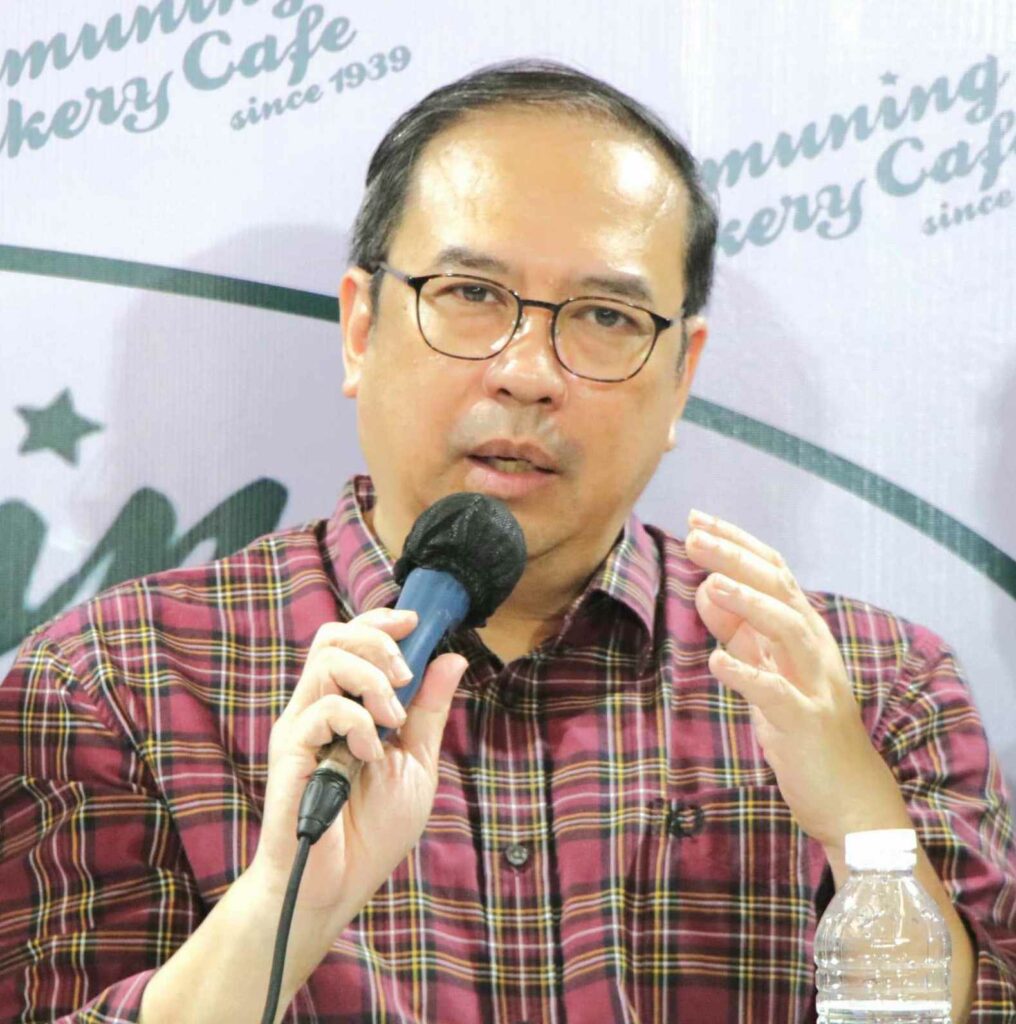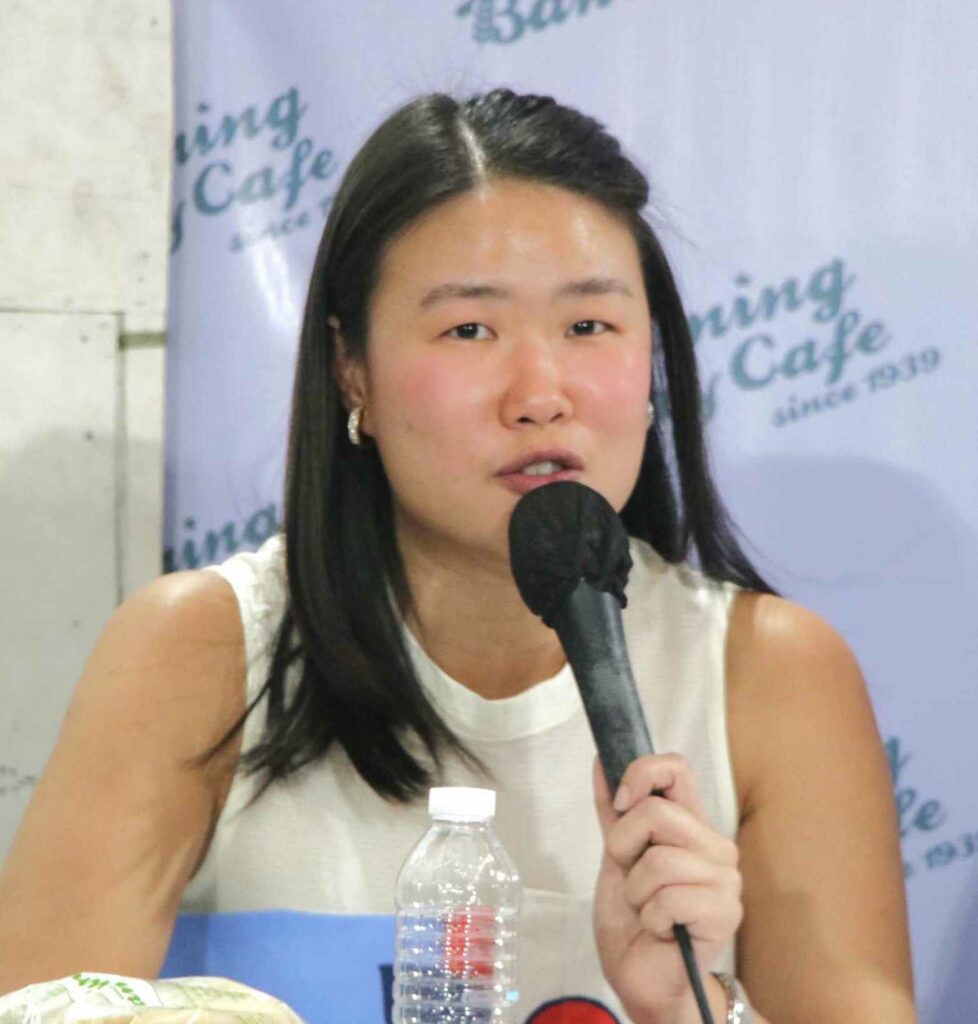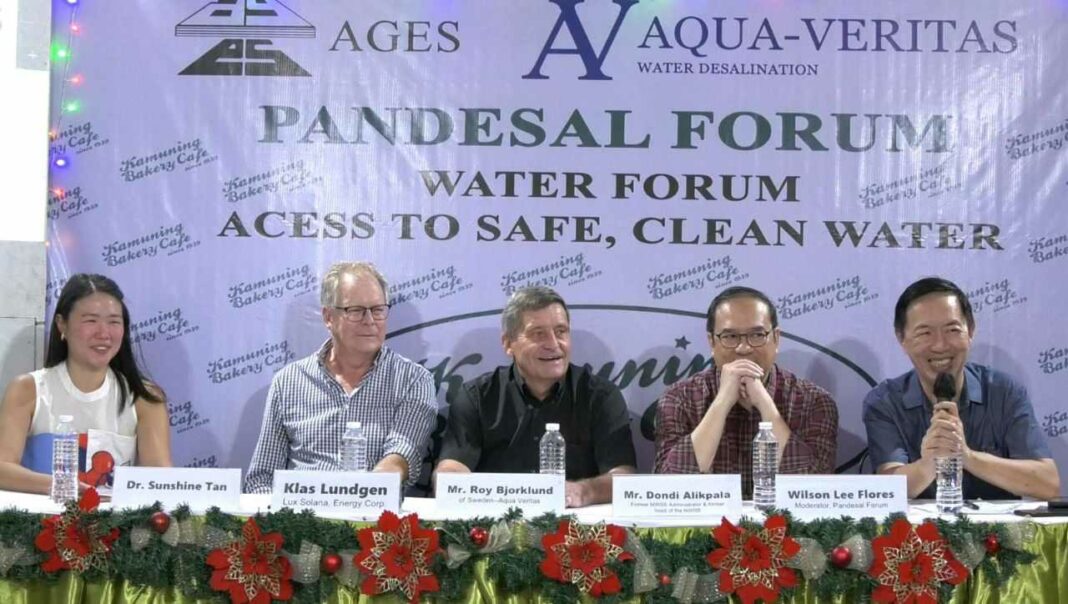In an initiative to combat the chronic problem of water scarcity, the Philippines is set to embrace a transformative approach—integrating cutting-edge, containerized, computerized desalination technology from Sweden. This innovative endeavor aims to revolutionize water accessibility and heralds a new era in sustainable, potable water supply.
The proponent of modern Swedish technology of computerized, containerized desalination is Aqua-Veritas Water Purification and Desalination, a Philippine company which is bringing world-class Swedish computerized and containerized desalination technology to help Philippine communities to produce safe, affordable potable water.
Aqua-Veritas co-founder Engineer Richard Tan said improving supply of safe, potable water is the advocacy of their company in response to the predicted acute shortage and inconsistent supplies of potable water in the Philippines.
“WATER CRISIS”
The United Nations and UNICEF data show that 53% of households in the Philippines lack access to a safely managed water supply.
In March this year, President Ferdinand Marcos Jr. said the country is facing a “water crisis,” with 11 million families lacking access to clean water.
In the Nov. 10 “Pandesal Forum” at the 84-year-old Kamuning Bakery Cafe in Quezon City with this writer as moderator, former MWSS Chairman and former head of the National Water Resources Board (NWRB) Dondi Alikpala discussed the water crisis of the Philippines, explaining how lack of clean and safe water supply affects not only major cities but also rural regions and causes suffering for the poor.

Alikpala said only 54.1% of Philippine households have good water connections and even Metro Manila residents’ water supply quality isn’t consistently good.
Alikpala added that the water crisis of the Philippines isn’t just due to water scarcity, but it is also a problem of managing the entire system.
SWEDISH DESALINATION TECHNOLOGY
Also at the Pandesal Forum, the following speakers discussed before the media the option of utilizing Sweden’s desalination technology.

Roy Bjorklund, Technical Director and co-founder Sweden-Aqua-Veritas, said Swedish desalination technology can help the Philippine water situation.
Klas Lundgren of Lux Solana Energy Corporation, said his company is now involved in combining Aqua-Veritas systems with Solar Energy technologies.

“Aqua-Veritas can offer Swedish desalination technology and also the financing support for local government units (LGUs), private or government projects. Aqua-Veritas has already talked to a dozen mayors and three governors about this Swedish technology,” Lundgren said.

Dr. Sunshine Tan, the talented executive of Aqua-Veritas, explained why the Swedish technology they are offering can help alleviate the Philippine water situation.
Tan, who holds a PhD in Environmental Engineering from the University of the Philippines and a Masteral degree in Geotechnical Engineering from University of Tokyo, said this Swedish technology avoids human error, because of computerization.
“I believe the Philippines, a nation marred for generations by persistent water supply challenges, is on the brink of a revolutionary change if decisive and technological solutions are implemented,” Tan said.
She further explained: “With a continuously growing population that is exacerbated by natural disasters and environmental woes like deforestation, access to clean drinking water remains a critical issue, particularly in remote and underserved regions of the country. The adoption of modern Swedish desalination technology emerges as a beacon of hope, promising a viable solution to the longstanding Philippine water crisis.”
SCALABLE, ADAPTABLE SYSTEM
According to Aqua-Veritas officials, Sweden’s state-of-the-art desalination technology, packaged within mobile and modular containers, presents a versatile and scalable system. These units efficiently convert seawater and brackish sources into safe, drinkable water.
What sets this innovation apart is not just its efficacy in production but also its adaptability. The modular design allows for swift deployment and easy scalability, catering to the diverse needs of both rural communities and bustling urban centers.
Key to this technological advancement is its computerized infrastructure, which Engineer Sunshine Tan highlighted during the Pandesal Forum. She said computerized system prevents lapses or inefficiencies caused by human errors.
Remote monitoring and management systems ensure optimized operation and swift response to maintenance needs. This feature is crucial for areas with limited access to technical expertise, guaranteeing continuous and efficient water production.
CHALLENGES
However, amid the promise of this technological marvel lie significant challenges. Energy consumption is a pivotal concern, demanding a stable and sustainable power supply, but Aqua-Veritas officials recommend utilizing solar energy to lower costs due to the Philippines’ high electric power costs.
Moreover, while remote monitoring assists in system management, the availability of skilled technicians for maintenance is vital for sustained functionality.
The implementation strategy involves a phased approach. Identifying priority areas experiencing acute water scarcity, these desalination systems will be customized and deployed accordingly.
Community engagement and training programs will educate locals in the operation and basic maintenance of these systems, ensuring long-term sustainability. Collaborations between local authorities, private sectors, and NGOs will be instrumental in the successful deployment and maintenance of these systems.
The collaboration between the Philippines and Sweden or relevant technology providers is paramount. It demands comprehensive financial and technical support for the successful initiation and continuous operation of these systems. Rigorous environmental impact assessments and adherence to local regulations are non-negotiable, ensuring that the integration of this technology remains sustainable and eco-friendly.
The possible infusion of Swedish desalination technology marks a turning point in the Philippines’ pursuit of water security. This ambitious endeavor has the potential to reshape the water landscape, alleviating the burden of water scarcity and empowering communities with sustainable, clean water sources.
As this partnership between the Philippines and Sweden unfolds through Aqua-Veritas, it signifies not only a leap in technological innovation for the country but also an important step towards ensuring what speaker Dondi Alikpala and I as moderator described as “a fundamental human right—access to safe, potable water for all.”
For further inquiries, contact Aqua-Veritas at Tels. 89396368, 89211322, 79033965, 09228800967 Email: ages@ages.ph


